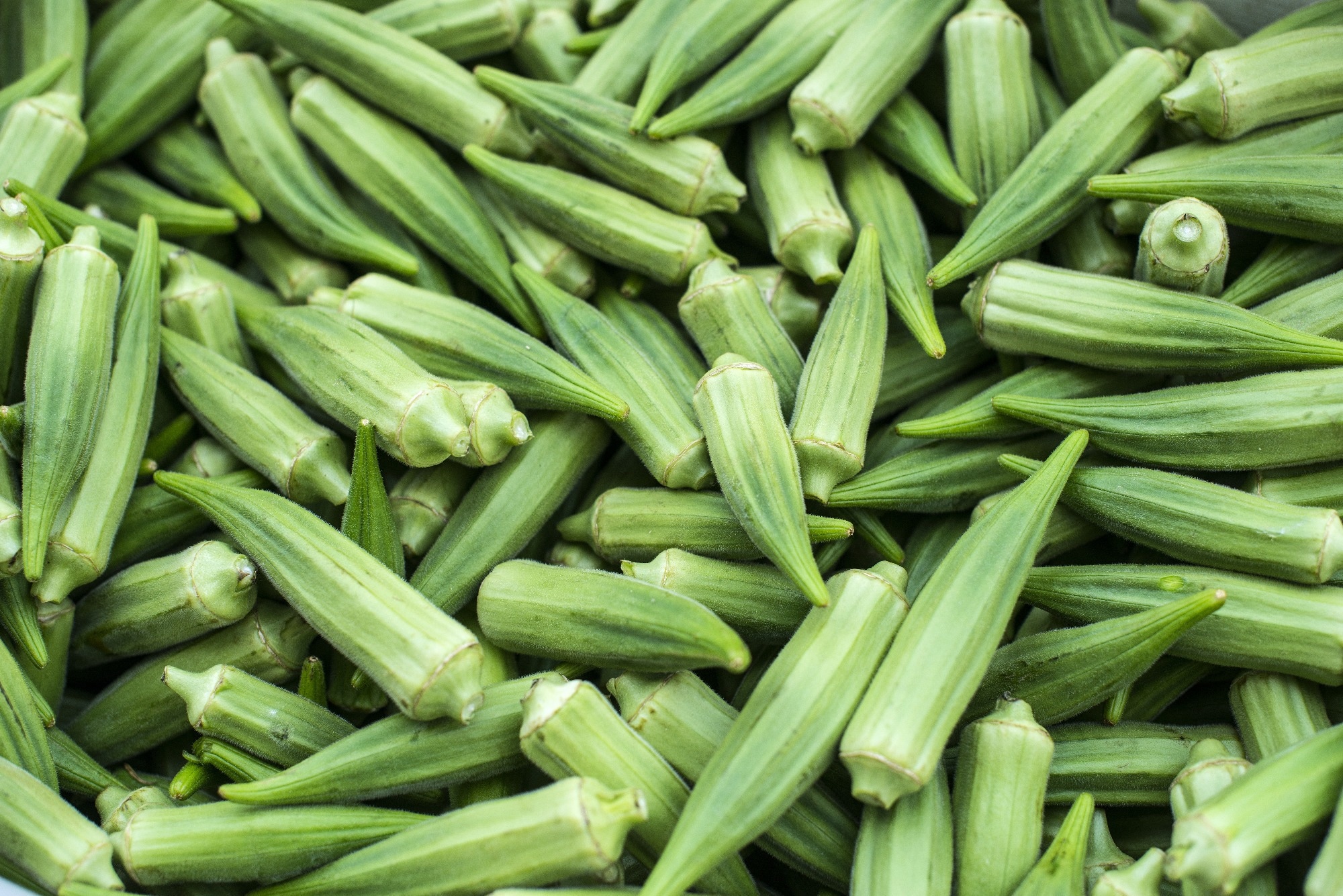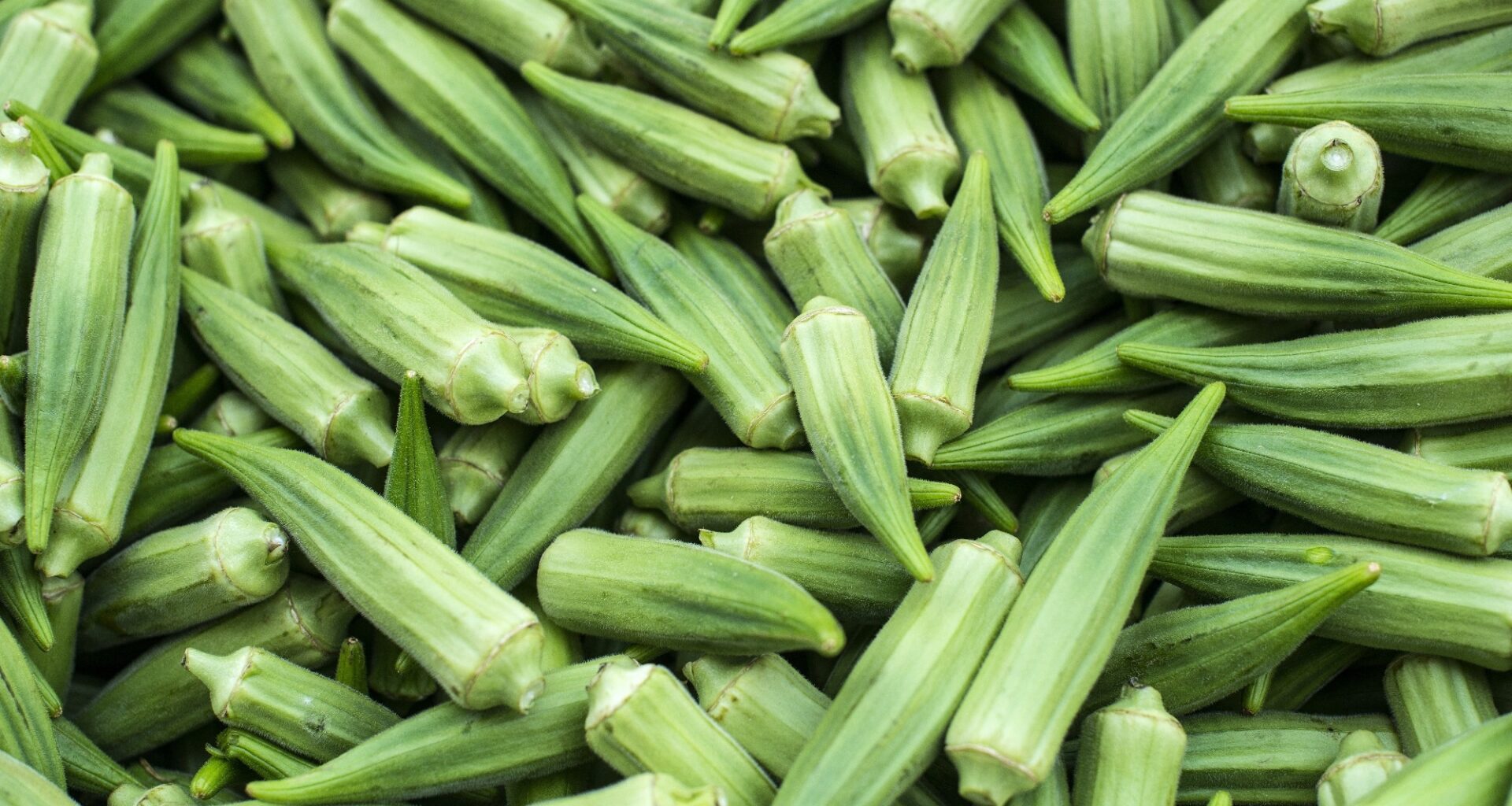Introduction
Nutritional and bioactive components
Evidence for glycemic control
Mechanisms of action
Dietary use and preparation
Limitations and safety
References
Further reading
Okra demonstrates clinically supported benefits in lowering blood glucose, HbA1c, and cholesterol levels in patients with type 2 diabetes. Its bioactive compounds, polysaccharides, and mucilage contribute to enzyme inhibition, improved gut health, and enhanced insulin sensitivity.
 Image Credit: otherstock / Shutterstock.com
Image Credit: otherstock / Shutterstock.com
Introduction
Abelmoschus esculentus (L.) Moench, commonly known as okra, is a vegetable widely cultivated in tropical and subtropical regions. Beyond its culinary use, okra has long been utilized in traditional medicine for its anti-hyperglycemic, antioxidant, and anti-inflammatory properties.1,2
The global increase in type 2 diabetes mellitus (T2D), together with interest in low-toxicity botanical therapies, has stimulated clinical and mechanistic research on okra as a functional food for glycemic control.1,3
Nutritional and bioactive components
The therapeutic potential of okra pods, seeds, and peels derives from a complex phytochemical matrix rich in polysaccharides, polyphenols, flavonoids, vitamins, and trace minerals.2,5 The viscous polysaccharides, mainly composed of rhamnogalacturonan-I-type pectins, form the characteristic mucilage that contributes to delayed glucose absorption and improved gut viscosity.5
HPLC analyses have identified key phenolic constituents including isoquercitrin, quercetin-3-O-gentiobioside, rutin, and protocatechuic acid, which possess strong free-radical scavenging and enzyme-inhibitory activity.4 These bioactive compounds underpin okra’s observed effects on oxidative stress, lipid peroxidation, and insulin resistance in both preclinical and clinical settings.1,4,7
Evidence for glycemic control
Animal models consistently demonstrate that okra extracts, polysaccharide fractions, and seed powders reduce fasting blood glucose, improve insulin sensitivity, and modulate serum lipid profiles.1,9 In diabetic rats, okra extract also restored intestinal microbial diversity, increasing beneficial taxa such as Christensenellaceae while reducing Desulfovibrionaceae, which are associated with metabolic inflammation.9
In humans, multiple RCTs confirm these metabolic benefits. A 2023 double-blind clinical trial administering 1,000 mg okra powder three times daily for 12 weeks demonstrated significant reductions in fasting blood glucose (FBG), HbA1c, total cholesterol, triglycerides, and C-reactive protein without adverse effects.7
Meta-analyses further substantiate these outcomes. The 2023 Frontiers in Pharmacology review reported pooled reductions in FBG of approximately −14.6 mg/dL, with non-significant change in HbA1c, whereas the 2024 Frontiers in Nutrition meta-analysis encompassing nine RCTs found greater improvements: FBG −39.6 mg/dL, HbA1c −0.46%, LDL −7.9 mg/dL, and total cholesterol −14.4 mg/dL.6,8 The 2025 Phytotherapy Research analysis of six RCTs confirmed significant decreases in both FBG (−21.7 mg/dL) and HbA1c (−0.42%) while showing no consistent effects on body weight or insulin resistance indices.3
Collectively, these findings suggest that standardized okra supplementation contributes to clinically meaningful reductions in glycemia and dyslipidemia, particularly at doses ≤3,000 mg/day.6–8
Mechanisms of action
The metabolic effects of okra arise from both physical and biochemical mechanisms. The soluble mucilage forms a gel-like matrix in the intestinal lumen, slowing glucose diffusion and reducing postprandial glycemic excursions.1,5 Concurrently, polyphenolic compounds inhibit carbohydrate-digesting enzymes such as α-amylase and α-glucosidase, thereby reducing glucose liberation from dietary starches.4
Further mechanisms include modulation of peroxisome proliferator-activated receptors (PPARs), enhancement of glucose transporter type 4 (GLUT-4) expression, and suppression of inflammatory cytokines such as TNF-α and IL-6 in diabetic models.1 Okra polysaccharides also improve gut microbiota composition, influencing insulin sensitivity and lipid metabolism.9
Dietary use and preparation
Traditional use includes “okra water,” prepared by soaking sliced pods overnight. This aqueous infusion extracts soluble fibers, mucilage, and phenolics, which are believed to contribute to glycemic effects.2 However, standardized dosing in research has relied primarily on encapsulated dried okra powder at 1,000–3,000 mg/day for 8–12 weeks, often administered alongside standard antidiabetic therapy.3,7
Culinarily, okra remains a versatile vegetable used in stews and soups, where thermal preparation does not eliminate its fiber-dependent activity, although polyphenol content may decline with overcooking.2
Limitations and safety
Despite encouraging results, significant heterogeneity exists across studies regarding formulation, duration, and glycemic endpoints.3,6 Long-term data beyond three months remain limited. Furthermore, bioavailability and pharmacokinetic data for okra’s active constituents are insufficient, constraining mechanistic understanding.2
Human trials report an excellent safety profile, with no hepatotoxic, nephrotoxic, or cardiovascular adverse effects up to 3,000 mg/day for 12 weeks.7,8 However, an animal study demonstrated that concurrent administration of okra extract and metformin reduced metformin absorption and efficacy, indicating a potential drug–fiber interaction.10 While not yet confirmed in humans, clinicians should advise patients to separate dosing of okra-based supplements and oral antidiabetic medications.10
References
Ahmad, N., Lesa, K. N., Ikawati, Z., & Fakhrudin, N. (2025). Health benefits of okra (Abelmoschus esculentus) against diabetes mellitus and cognitive dysfunction: a review. Food Production, Processing and Nutrition 7(1). DOI:10.1186/s43014-024-00284-y, https://fppn.biomedcentral.com/articles/10.1186/s43014-024-00284-y.
Elkhalifa, A. E. O., Alshammari, E., Adnan, M., et al. (2021). Okra (Abelmoschus Esculentus) as a Potential Dietary Medicine with Nutraceutical Importance for Sustainable Health Applications. Molecules 26(3); 696. DOI:10.3390/molecules26030696, https://www.mdpi.com/1420-3049/26/3/696.
Fan, Y., Wu, L., Zhang, Y., et al. (2025). The Impact of Okra (Abelmoschus esculentus) Supplementation on Diabetes and Obesity Biomarkers in Type 2 Diabetes Patients: A Systematic Review and Meta‐Analysis of Randomized Controlled Trials. Phytotherapy Research 39(10); 4693–4703. DOI:10.1002/ptr.70071, https://onlinelibrary.wiley.com/doi/10.1002/ptr.70071.
Wu, D., Nie, X., Shen, D., et al. (2020). Phenolic Compounds, Antioxidant Activities, and Inhibitory Effects on Digestive Enzymes of Different Cultivars of Okra (Abelmoschus esculentus). Molecules 25(6); 1276. DOI:10.3390/molecules25061276, https://www.mdpi.com/1420-3049/25/6/1276.
Dantas, T. L., Alonso Buriti, F. C., & Florentino, E. R. (2021). Okra (Abelmoschus esculentus L.) as a Potential Functional Food Source of Mucilage and Bioactive Compounds with Technological Applications and Health Benefits. Plants 10(8); 1683. DOI:10.3390/plants10081683, https://www.mdpi.com/2223-7747/10/8/1683.
Mokgalaboni, K., Lebelo, S. L., Modjadji, P., & Ghaffary, S. (2023). Okra ameliorates hyperglycaemia in pre-diabetic and type 2 diabetic patients: A systematic review and meta-analysis of the clinical evidence. Frontiers in Pharmacology 14. DOI:10.3389/fphar.2023.1132650, https://www.frontiersin.org/articles/10.3389/fphar.2023.1132650/full.
Tavakolizadeh, M., Peyrovi, S., Ghasemi-Moghaddam, H., et al. (2023). Clinical efficacy and safety of okra (Abelmoschus esculentus (L.) Moench) in type 2 diabetic patients: a randomized, double-blind, placebo-controlled, clinical trial. Acta Diabetologica 60(12); 1685-1695. DOI:10.1007/s00592-023-02149-1, https://link.springer.com/article/10.1007/s00592-023-02149-1.
Bahari, H., Shahraki Jazinaki, M., Rahnama, I., et al. (2024). The cardiometabolic benefits of okra-based treatment in prediabetes and diabetes: a systematic review and meta-analysis of randomized controlled trials. Frontiers in Nutrition 11. DOI:10.3389/fnut.2024.1454286, https://www.frontiersin.org/articles/10.3389/fnut.2024.1454286/full.
Wu, L., Tang, B., Lai, P., et al. (2022). Analysis of the effect of okra extract on the diversity of intestinal flora in diabetic rats based on 16S rRNA sequence. Food Science and Technology 42. DOI:10.1590/fst.00121, https://www.scielo.br/j/cta/a/KcypfQsrHBNDSm3VRFPTM3C/?format=html&lang=en.
Khatun, H., Rahman, A., Biswas, M., & Islam, A. U. (2011). Water-soluble Fraction of Abelmoschus esculentus L Interacts with Glucose and Metformin Hydrochloride and Alters Their Absorption Kinetics after Coadministration in Rats. ISRN Pharmaceutics. DOI:10.5402/2011/260537, https://www.hindawi.com/journals/isrn/2011/260537/.
Further Reading
Last Updated: Nov 10, 2025

